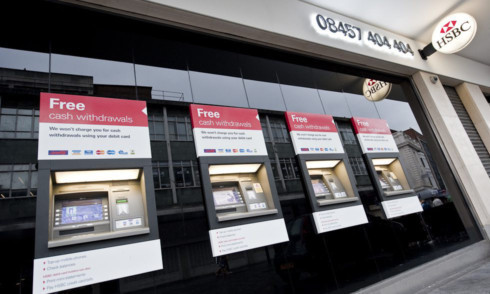HSBC chief executive Stuart Gulliver picked up a £7.4 million pay package in 2012 as the banking giant posted pre-tax profits of £13.7 billion.
The group also confirmed it paid 204 of its staff more than £1m last year, with 78 of those individuals based in the UK.
Mr Gulliver, who took over at the helm in 2011, said the bank had made significant progress during the year despite being hit by a record £1.2bn fine to settle a US investigation into money-laundering,
Pre-tax profits fell 6% to £13.7bn but, excluding movement in the value of its debt, HSBC said underlying profits were up 18% to £10.9bn.
Mr Gulliver’s package was £600,00 lower than the year previous and included his base salary of £1.25m, around £1.2m of benefits including pension entitlement, plus long-term share incentive awards worth a further £3m.
TUC general secretary Frances O’Grady hit out at the payout.
“The culture of entitlement is alive and well in the City,” she said.
“At a time when real wages are falling for the vast majority of people, the banking sector is continuing to hand out huge bonuses as if they were pocket change.”
The banking group, which employs 48,000 people in the UK, makes an estimated 90% of its money outside Britain and has benefited from its exposure to emerging markets in Asia.
HSBC’s record settlement with US regulators in December followed accusations it allowed rogue states and drug cartels to launder billions of pounds through its US arm. The findings led to the resignation of head of compliance David Bagley.
As well as the US penalties, the bank recorded an additional £930m provision to cover continuing payment protection insurance claims and the mis-selling of interest rate swap products in the UK.
Mr Gulliver said: “HSBC made significant progress in 2012. First and foremost we grew our business. We increased revenues, performed well in most faster-growing markets and enjoyed a record year in commercial banking.”
The bank opened a new Dundee branch last year and said it had seen strong growth in its Scottish operations, with a 25% increase in lending to SMEs and a 32% rise in the corporate sector.
“We’re increasingly seeing businesses adapting to the new environment they find themselves in and remain focused on supporting those customers seeking growth in new markets,” interim Scottish CEO Doug Baikie said.
“We’ve had an excellent year in terms of lending growth in the corporate segment, supporting a number of Scottish corporates with their strategic ambitions. This continued growth is mirroring that of some of Scotland’s key sectors, including oil and gas and food and drink.”
Shares were down 18.1p to 710p.
business@thecourier.co.uk
